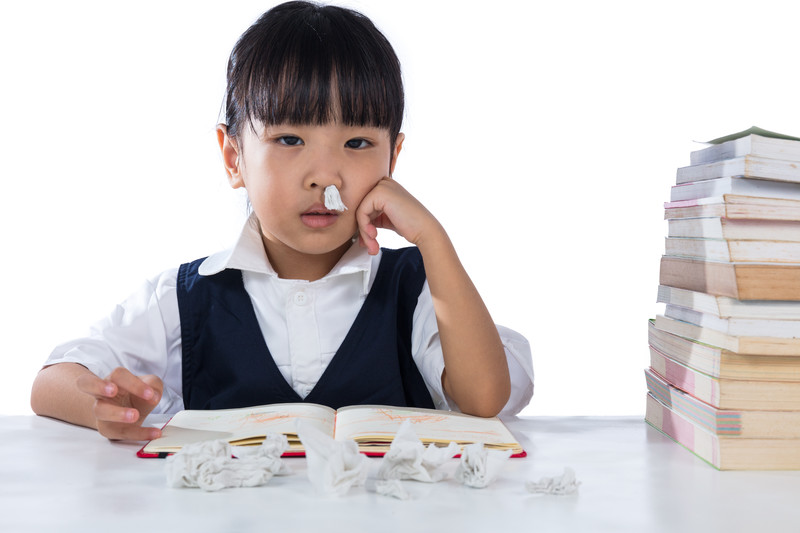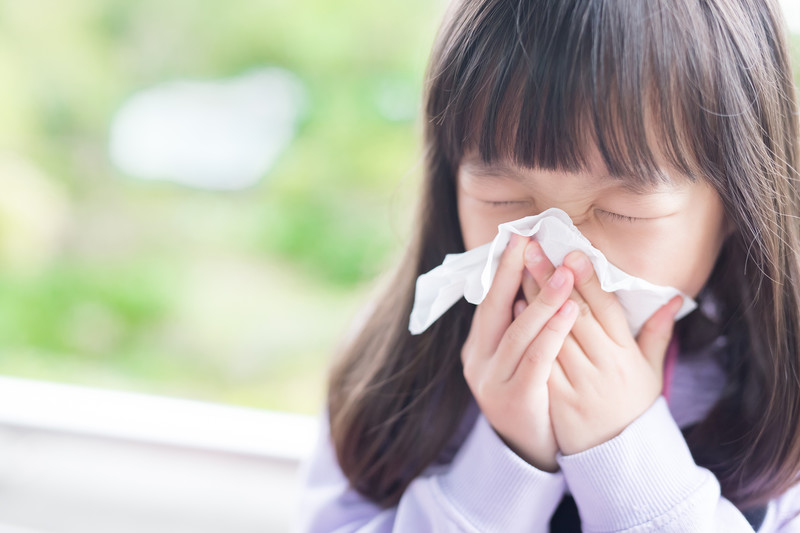| |
Medicines for Cough and Common Cold in Children
|
 |
What are the symptoms of Cough and Common Cold
|
|
 |
Common cold (cold) is a viral infection of the upper respiratory tract which is usually self-limiting. Symptoms associated with the common cold include nasal congestion, runny nose, cough (both chesty cough and dry cough), sore throat and sneezing. Your child may also look or feel tired, decrease in appetite, have headache or fever. Symptoms of cold usually improve on their own in about 7-10 days. Consult your doctors if these symptoms persist or worsen.
|
|
▲ back to top
General advice on the management of Cough and Common Cold in Children
|
- Since common cold is a viral infection, antibiotics will not work. The mainstay of treatment is to relieve the associated symptoms. Drinking plenty of fluid and taking more rest. Upon advice from doctor or pharmacist, taking drugs that alleviate symptoms could help your child feel better.
- Encourage children to wash their hands with liquid soap regularly, especially after they blow their nose or cough. They should also cover their mouth (preferably with a tissue) when they cough. Children should avoid touching their eyes, nose or mouth with their hands and should avoid sharing cups, glasses or cutlery. These measures should reduce the risk of spreading the infection to other children.
|
 |
- If necessary, over-the-counter cough and cold medicines can be considered for children aged 6 to 12 years after consulting your doctors or pharmacists, and the treatment should not last more than 5 days.
- Take the medicines according to labelled instructions or doctor’s instruction. If a dose is missed, take it as soon as possible or skip the missed dose and take the next dose as directed. Do not take higher than the prescribed dose at one time unless directed by healthcare professionals.
- Seek advice from a doctor if your child’s symptoms do not improve in 2-3 days, worsen or you have concerns about the medicines that your child is taking.
|
|
▲ back to top
What are the common Cough and Cold medicines used in children
|
Drug Group
|
Examples
|
Precautions
|
| 1. |
Analgesics and anti-pyretics
|
Paracetamol and ibuprofen*
|
Aspirin is not recommended for use in children under 16 years of age unless otherwise prescribed by a doctor.
|
| 2. |
Decongestants
|
Oral: pseudoephedrine*, ephedrine* and phenylephrine
Topical: oxymetazoline or xylometazoline nasal drops
|
Decongestants should not be used for longer than 7 days as rebound congestion can occur.
|
| 3. |
Nasal drops
|
Normal saline (sodium chloride 0.9%) nasal drops
|
Administration before feeds may ease feeding difficulties caused by nasal congestion.
|
| 4. |
Cough medicines
|
Non-productive cough (i.e. Cough without chesty or dry cough):
Cough Suppressants^
codeine#* and dextromethorphan*
Productive cough (i.e. Chesty cough):
(i) Expectorants
ammonium salts, guaifenesin and sodium citrate.
(ii) Mucolytics
bromhexine, ambroxol, acetylcysteine and carbocisteine
|
Codeine# is contraindicated for all children younger than 12 years of age. Avoid the use of codeine# in adolescents 12 to 18 years of age who have other risk factors that may increase their sensitivity to the respiratory depressant effects of codeine# unless the benefits outweigh the risks. Risk factors include conditions associated with hypoventilation, such as postoperative status, obstructive sleep apnea, obesity, severe pulmonary disease, neuromuscular disease, and concomitant use of other medications that cause respiratory depression.
|
| 5. |
Antihistamines
|
Chlorpheniramine, diphenhydramine* and promethazine*.
|
Antihistamines should not be used in treating chesty coughs as they reduce bronchial secretions, leading to the production of more viscous mucus which becomes more difficult to remove.
|
|
# Starting from 26 January 2024, it is a legal requirement for pharmacy to record the purchaser's personal information, including Identity Card number, when supplying codeine-containing medicines without doctor's prescription.
^ Pharmaceutical products containing pholcodine have been banned in Hong Kong since 1 January 2024 due to their benefits no longer outweigh the risks.
* Apart from oral products solely contain paracetamol, which are sold over-the-counter as branded products or under the generic name paracetamol, cough and cold medicines may contain controlled ingredients that can only be supplied by doctors or be sold in pharmacies in the presence and under the supervision of registered pharmacists. Please consult your pharmacist in case of doubt.
|
|
▲ back to top
Recent recommendations for safe use of Cough and Cold medicines in Children
|
|
- Cough and cold medicines are not indicated for children under 6 years old. If your child is suffering from symptoms of cough and cold, you should consult your doctor for the most appropriate treatment.
- Codeine# is contraindicated for all children younger than 12 years of age. Avoid the use of codeine# in adolescents 12 to 18 years of age who have other risk factors that may increase their sensitivity to the respiratory depressant effects of codeine# unless the benefits outweigh the risks. Risk factors include conditions associated with hypoventilation, such as postoperative status, obstructive sleep apnea, obesity, severe pulmonary disease, neuromuscular disease, and concomitant use of other medications that cause respiratory depression.
|
|
▲ back to top
Communication with your doctors or pharmacists
|
|
- Cough and cold medicines, particularly when used in children, should preferably be used under the close supervision of a pharmacist or a doctor.
- Read the labels of the cough and cold medicines carefully, and be familiar with the name and dosage of the drugs. Be cautious about their possible side effects. Many cough and cold medicines contain a number of active ingredients and you should read the labels carefully or consult your doctor or pharmacist to understand these active ingredients and the possible drug interactions with other medicines taking by your child. Avoid taking drugs which contain the same type of active ingredients to prevent overdose.
- Seek advice from your doctor or pharmacist as soon as possible if your child experience any symptoms or side effects suspected to be related to the cough and cold medicines taken, e.g. unusual drowsiness, abdominal distension or urinary retention.
- Some cough and cold medicines are distributed into breast milk and may cause adverse reaction in breastfed infants. Inform your doctor or pharmacist if you are breastfeeding so that they can consider other options. For medicines containing codeine#, because of the potential for serious adverse reactions, including excess sedation, respiratory depression, and death in a breastfed infant, breastfeeding is not recommended during treatment with codeine#.
|
|
▲ back to top
What other precautions shall be taken before using Cough and Cold medicines in children
|
|
- It is always prudent to seek your doctor or pharmacist for advice on the best treatment option for your child’s symptoms. Different cough and cold medicines may have different therapeutic effects and side effects; your doctor or pharmacist will recommend the most appropriate drugs for your child’s symptoms.
- Tell the doctor or pharmacist the medical, drug and allergy history of your child and any drugs that your child is taking because cough and cold medicines may interact with other drugs and medical conditions.
- Breastfeeding mother should seek medical advice before taking any cough medicines. For medicines containing codeine#, because of the potential for serious adverse reactions, including excess sedation, respiratory depression, and death in a breastfed infant, breastfeeding is not recommended during treatment with codeine#.
- Medicines should not be shared between individuals, especially between an adult and a child.
- The remaining medicine after a completed treatment must not be re-used again and should be discarded.
|
|
▲ back to top
Storage of medicines |
|
All medicines must be stored in a cool dry place. Unless specified on the labels, medicines should not be stored in refrigerator and must be kept out of the reach of children to prevent accidental ingestion or poisoning
|
|
▲ back to top
|
|
Acknowledgement : The Drug Office would like to thank the Professional Development and Quality Assurance (PD&QA), Family Health Service (FHS) and Student Health Service (SHS) for their valuable contribution to the preparation of this article.
|
|
|
|
|

